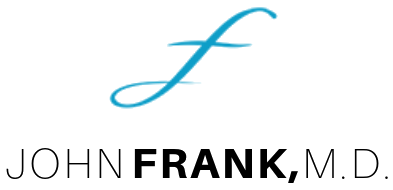Have you been struggling with dandruff and/or a dry scalp, and wondering if it’s connected to your hair loss?
These two common scalp issues can have a big impact on hair health – but it’s often the conditions that surround dry scalp and dandruff that most contribute to hair loss.
For this reason, understanding the link between dandruff, dry scalp, and hair loss – as well as their differences – are essential for managing these conditions to keep your hair strong and healthy.
The Link Between Dandruff and Dry Scalp
Dandruff and dry scalp are often mistaken for each other due to similar symptoms like flaking and itchiness. But they have different causes and symptoms, meaning they can affect hair and scalp health in different ways.
The similarities between dry scalp & dandruff include:
Flaking – Both conditions cause visible flakes on the scalp, which can fall onto clothing or remain in the hair.
Itchiness – Itching is common with both dry scalp and dandruff, though it can be more intense with dandruff.
Irritation – Both conditions can lead to redness and irritation if left untreated.
Temporary Hair Loss – Scratching from either condition can cause temporary hair shedding due to damage to the hair follicles.
Environmental Triggers – Cold, dry weather or other environmental factors can worsen both dry scalp and dandruff.
How do dry scalp & dandruff differ?
| Dry Scalp | Dandruff | |
| Flake Type |
Small, white, dry flakes. |
Larger, oily, yellowish flakes. |
| Scalp Condition |
Caused by a lack of moisture, resulting in a dry and tight feeling. |
Often caused by excess oil and irritation from underlying issues. |
| Underlying Issues |
Linked to dehydration, harsh hair products, or cold weather. |
Linked to fungal overgrowth (Malassezia) or skin conditions like seborrheic dermatitis, eczema, and/or psoriasis. |
| Treatment |
Focus on moisturizing and hydration. |
Focus on reducing oil and treating underlying fungal or skin conditions. |
Does Dry Scalp or Dandruff Cause Hair Loss?
There is a misconception that dandruff & dry scalp directly cause hair loss, but in most cases, these symptoms are not directly responsible for balding or significant hair thinning.
Rather, the conditions that lead to dry scalp and dandruff – or the secondary effects of scratching and scalp damage – might contribute to hair loss.
These conditions, especially when left untreated, can create an unhealthy environment for hair growth and lead to increased hair shedding.
Here are a few examples:

Dehydration – When your scalp isn’t properly hydrated, it becomes dry, flaky, and more prone to irritation. Without enough moisture, hair follicles may weaken, leading to brittle hair that breaks more easily.
Scalp Inflammation – Inflammation can affect the health of hair follicles and interrupt the hair growth cycle. This can cause hair to fall out prematurely, and may result in long-term hair thinning if not addressed.
Sebum Imbalance – The scalp’s natural oil is crucial for protecting both the scalp and hair. A lack of sebum production can cause hair to lose its natural moisture, becoming brittle and prone to breaking.
Itching – Excessive scratching weakens hair at the root and can cause it to fall out prematurely. In extreme cases, persistent scratching can lead to scarring or infection, further damaging hair follicles.
Manage Dandruff & Dry Scalp to Prevent Hair Loss
While dandruff or dry scalp don’t typically cause permanent hair loss, managing these conditions can help create a healthier environment for hair growth. Here are 6 key steps to take for a healthy scalp:
1. Good Scalp Hygiene
Clean your scalp regularly to remove excess oil and dead skin cells. However, be careful not to over-wash, as this can strip the scalp of its natural oils, leading to further dryness.
2. Gentle Scalp Handling
Avoid excessive brushing or scratching, by using soft brushes and focusing on gentle treatment of your scalp (such as light massage when shampooing) to minimize further irritation.
3. Suitable Shampoos & Conditioners
For dry scalp, opt for moisturizing shampoos & conditioners specifically designed to combat dryness. Look for ingredients like aloe vera, glycerin, or hyaluronic acid, which help lock in moisture.
For dandruff, look for anti-dandruff shampoos containing zinc pyrithione, selenium sulfide, or ketoconazole, which can help control dandruff by targeting its underlying issues.
4. Scalp Oils
Oils like coconut oil, jojoba oil, and argan oil can provide needed moisture while promoting the scalp’s natural balance.
5. Hydration & Diet
Drinking plenty of water and ensuring a nutrient-rich diet is important for maintaining scalp health. Staying hydrated and incorporating hair-healthy foods into daily meals will help nourish your scalp from the inside out.
6. Minimize Stress
Since stress can worsen dandruff, practicing stress management techniques such as meditation, exercise, or relaxation can help improve scalp health.
By managing dandruff or dry scalp with the right treatments and personal practices, you can create a healthier environment for hair growth to ensure your hair stays strong and vibrant.
Are You Experiencing Hair Loss?
Understanding the connection between dandruff, dry scalp, and hair loss is key to maintaining a healthy head of hair.
For those experiencing hair loss along with scalp dryness and/or dandruff, it’s common to resolve the scalp condition first and then address hair loss.
However, there are rare cases where the cause of balding is directly linked to the cause of dandruff or dryness (such as endocrine or thyroid issues). This is why it’s important to consult with a hair loss expert to assess the root cause of your hair loss.
Dr. John Frank helps patients in Columbus, Ohio and New York City explore their hair loss patterns to discover the underlying causes and suggest treatment options that suit their needs. To request your personal hair loss consultation, contact our team today.


